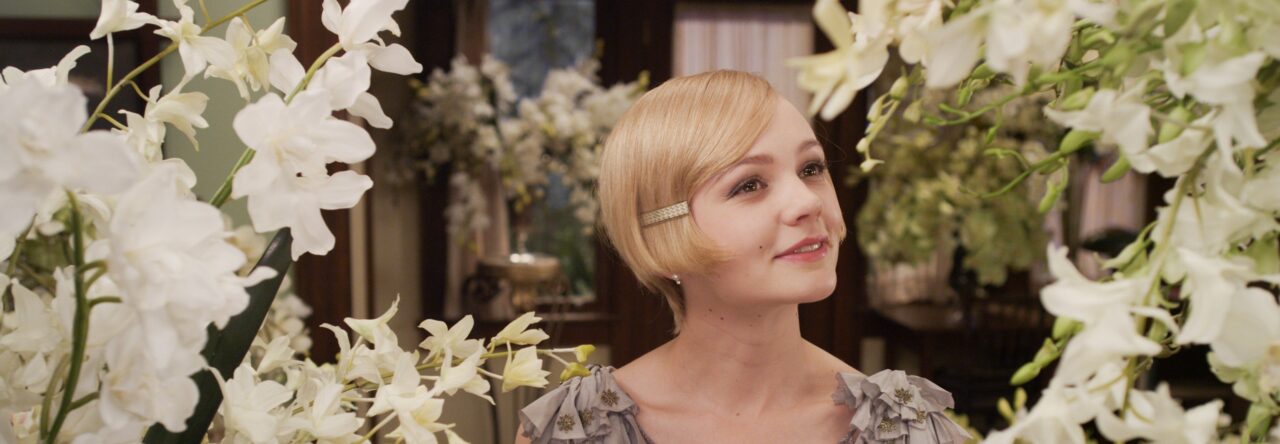Sometimes I think about the sound of Daisy’s voice before I think about her face. Fitzgerald described it as being “full of money,” but to me, it sounds like a kind of music that both dazzles and wounds. It lingers in the air, soft and golden, but if you listen long enough, you begin to hear the emptiness inside it — like the echo of something that once meant love but has long since faded. When I read The Great Gatsby, I couldn’t stop thinking about how a woman could be both adored and unseen at the same time.
Daisy lives in a world of shimmer: sunlight glinting off chandeliers, silk dresses whispering through the air, the ocean breeze carrying laughter from a mansion’s balcony. Yet behind that brightness lies a loneliness that feels almost sacred in its quietness. She is always surrounded by people, yet no one ever really looks at her. Even Gatsby, who claims to love her more than life itself, loves the dream of her — not the woman who exists in the silence after the music ends.
To me, Daisy’s tragedy is that she becomes the reflection of everyone’s desire. She is the promise of beauty, wealth, escape, and youth. Men look at her and see not who she is, but who they wish to be. And so she learns to survive by turning herself into what they want. She speaks in softness, she moves like light, and she hides behind laughter. It is a performance so perfect that even she starts to forget where the act ends and where she begins.
When I think of her sitting in that enormous house, surrounded by flowers and noise, I imagine her realizing that all the comfort she has chosen feels strangely weightless. She has everything that was supposed to bring happiness, and yet there is a faint tremor in her voice, as if she knows something has been lost forever. She once told Nick that she hoped her daughter would be a “beautiful little fool.” It sounded cruel when I first read it, but later I understood. It was not a wish born from cynicism, but from fear. Daisy knew too well what it meant to see clearly in a world that preferred women to be blind.
Her love for Gatsby is real, but it is also impossible. The man she once loved has turned her memory into a shrine. He has rebuilt an entire life around the idea of her, a version untouched by time, pain, or imperfection. How can any woman live up to that? When they finally meet again, it is as if she is forced to compete with her own ghost. She cannot love him the way he needs her to, because he is no longer in love with her — he is in love with the dream he invented.
There is something unbearably human in Daisy’s choice to stay. To choose safety over passion, to protect herself even when it means hurting others. It is easy to call her shallow or cruel, but I think she is simply tired. The weight of expectation, of beauty, of being the mirror that reflects everyone’s longing — it must be exhausting. Perhaps staying with Tom is her way of surviving, of keeping herself from drowning in the chaos of desire.
When the story ends and Gatsby’s house stands empty, I find myself thinking not of the man who died but of the woman who kept breathing. I wonder if Daisy ever looks across the bay at that green light again, or if she has learned to stop looking. Maybe she has folded the dream away like a silk dress in a drawer, something she no longer dares to touch.
To me, Daisy Buchanan is not a villain or a victim. She is the quiet embodiment of illusion — a woman who has learned that beauty can protect and destroy in equal measure. Her story reminds me how easy it is to become what others want to see, how difficult it is to remain real when the world keeps rewarding the dream. And yet, in the echo of her laughter, faint and shimmering, I sometimes hear not deceit, but a kind of plea — a wish to be seen not as a symbol, but as a person, fragile and full of longing, like anyone else.


Để lại một bình luận